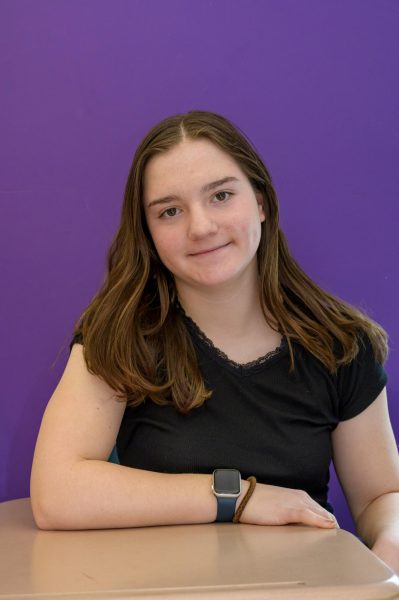North’s Puzzle Day, an event aiming to promote interest in North’s computer science and data analytics electives, as well as provide an entertaining afternoon of puzzling, took place Saturday, April 6 in the cafeteria.
This was the fifth year the event has run, featuring several challenging puzzles, as well as a panel discussion from college students, community members, and others who work and study in the computer and data science fields. The event was organized by math teachers Ethan Peritz and Sam Shoutis, with help from juniors Caitlin Riordan and Findlay Toone.
“We think data science and computer science are really important in a lot of different fields, and we’re trying to foster more diversity in them,” said Riordan. “We want to get younger kids involved. We want to get more women involved and people of different backgrounds. And that’s kind of the goal of this event.”
The event was inspired by a similar day at Harvard run by the CS50 class called International Puzzle Day. To create the puzzles, Peritz, Riordan, and Toone took inspiration from those at that event.
“These are made by people who are way smarter than me and know how to design puzzles that are like a good level of difficulty,” said Peritz.
Riordan and Toone tested Peritz’s puzzles, in addition to creating some of their own.
“I loved having Caitlin and Findlay help me this year because they could bring a really good student perspective of what was challenging, what was impossible for people of this age,” said Peritz, “and so we used that to kind of build the difficulty of this group of puzzles.”
The panel included an adjunct Harvard professor who helps run the CS50 class, several Harvard students, a Northeastern PhD student, and an engineer working to make accessible technology for people with disabilities.
“We had a series of questions that are sort of centered around, ‘How did you get interested in computer science?’ ‘What does it look like for you?’” said Shoutis. “Then some of the questions were more focused on, ‘How do we support diversity in these fields?’ ‘How do you have mentorship?’”
The panel also discussed how the field of computer science is viewed in society and by the media, and tried to dispel stereotypes.
“Computer science is not the stereotypical thing that you see portrayed in the media, where it’s the people sort of sitting in front of computers by themselves,” Shoutis added. “It’s a really collaborative and creative effort.”
Math teacher Shawn Wallace, who attended the event with his sons, enjoyed the experience of puzzling as a family.
“I like puzzles myself and I’m not very good at them, but I do enjoy them,” he said. “I think it’s good for the kids to experience the idea that a puzzle is meant to be something that’s tricky and that you have to work your way through. And sometimes having a discussion with people around you is really helpful.”









































